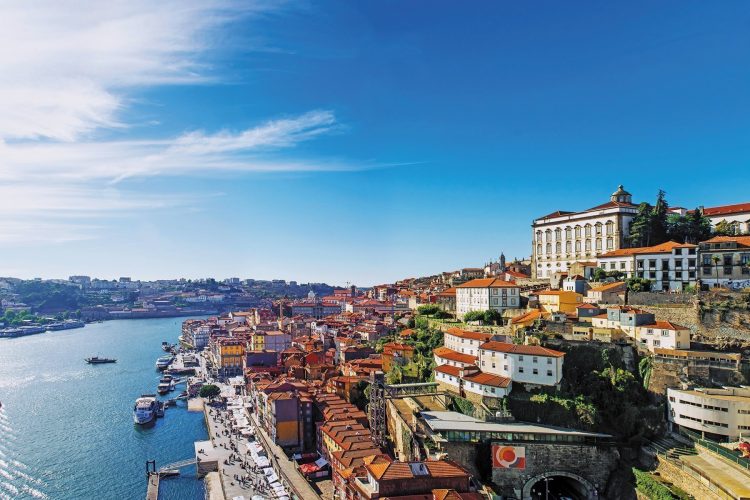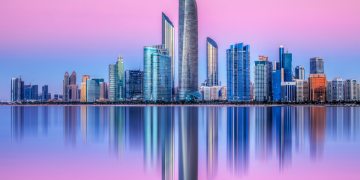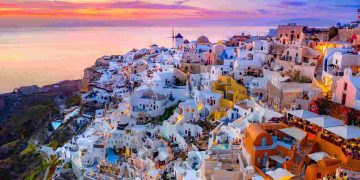Portugal, a country located in the southwest corner of the European continent, is famous for its rich history, unique culture, diverse geographical features, complex economic structure and changeable political pattern. Every step of Portugal’s journey from former maritime empire to current EU member state has been filled with legends. This article will deeply analyze the unique charm and cultural heritage of Portugal from multiple dimensions such as history, culture, geography, economy and politics, and take you to appreciate the infinite charm of this country.
History: From maritime Empire to modern State
The history of Portugal is a magnificent epic, especially its glorious achievements in the age of Great navigation, which is still talked about. As early as 1143, Portugal declared its independence and became one of the first nation states in Europe. However, it was Portugal’s maritime exploration and colonial expansion in the 15th and 16th centuries that really cemented its reputation.
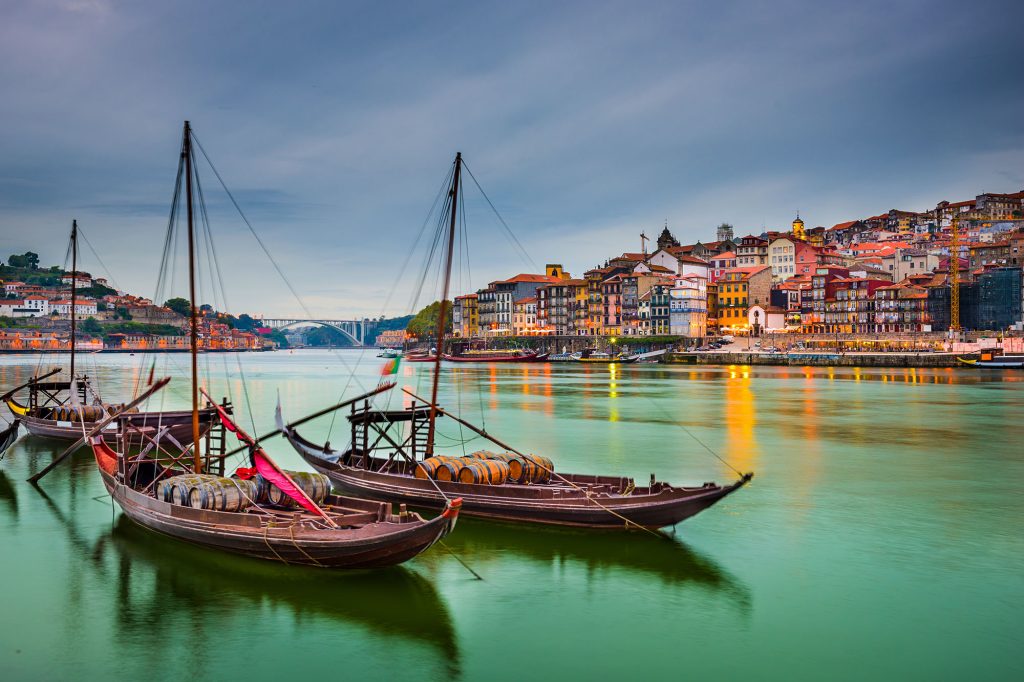
- The glory of the Great Age of Navigation
The Portuguese, with their excellent navigation skills and fearless spirit of exploration, opened an unprecedented geographical discovery in human history. Da Gama rounded the Cape of Good Hope and opened the first new route to India. Magellan’s fleet completed man’s first circumnavigation of the globe, proving the sphericity of the Earth. These feats not only greatly expanded the geographical knowledge of mankind, but also brought great wealth and extensive colonies to Portugal, making it a maritime power in Europe. At that time, Portuguese navigators bravely sailed into unknown seas, their ships loaded with gold, spices, and slaves, bringing unprecedented prosperity to Portugal. - The rise and fall of colonial empires
With the continuous expansion of colonies, Portugal’s sphere of influence spread across Africa, Asia and the Americas, becoming one of the most powerful colonial empires in the world at the time. In Asia, Portugal occupied important ports such as Malacca and Macau and monopolized trade in the East. In Africa, they controlled the trade in gold and ivory; In the Americas, they established a vast slave trade network. However, the great must fall, and the long colonial war and domestic political turmoil gradually weakened Portugal’s power. In 1580, Portugal was annexed by Spain and lost its independence. It was not until 1640 that Portugal regained its independence under the leadership of the Duke of Braganza, but by this time Portugal had lost its former glory and was gradually relegated to the periphery of Europe. - Changes in modern history
In modern times, Portugal has experienced many political changes and social upheavals. At the end of the 18th century, the French Napoleonic army invaded Portugal in an attempt to bring the country under its European hegemony. However, with the help of the British, Portugal successfully drove out the invaders and defended the independence of the country. Portugal was a constitutional monarchy from 1820 to 1910, and the political system was relatively stable, but social conflicts and economic development problems still plagued the country. The establishment of the Portuguese Republic in 1910 marked the beginning of a new historical period for Portugal. Since then, Portugal has experienced a series of major events such as military dictatorship and Carnation revolution, and the political pattern has experienced many upheavals and changes. In the end, under the impetus of democratic forces, Portugal established a modern democratic system and became a stable member of Europe. - Culture: diverse integration and unique customs
Portuguese culture is deeply influenced by African, American and Asian cultures, forming a unique blend of diverse styles. From language and religion to art and music, Portuguese culture is rich in diversity and richness. - Language and religion
Portuguese is the official language of Portugal and the fifth largest language in the world, spoken by more than 200 million people. In addition to Portugal itself, Portuguese is also widely spoken in Brazil, Angola, Mozambique and other countries. This makes the Portuguese language an important link between these countries and reflects the extensive influence of Portugal throughout history. In terms of religion, Portugal is a Catholic country, with about 80.2% of the inhabitants practicing Catholicism. Religious celebrations play an important role in Portuguese culture, such as Easter, SAN Antonio, St. John’s Day and other festivals are full of strong religious colors. These festivals are not only the spiritual sustenance of the Portuguese people, but also an important moment for them to show their traditional culture and folk customs. - Art and Architecture
Portugal has a distinctive artistic and architectural style. Tile art is a highlight of Portuguese architecture, with blue and white tiles adorning every corner of the city, demonstrating the extraordinary creativity of the Portuguese people. The patterns and colors on these tiles not only beautify the urban environment, but also convey the Portuguese people’s love for life and pursuit of beauty. In addition, Manuelian architecture is also unique to Portugal, and its design is inspired by the sea and symbols of kingship, characterized by twisting columns, king’s arms, and elaborate carvings. Belem Tower and Jeronimus Monastery in Lisbon are the representative works of Manuel architecture, which not only show the unique charm of Portuguese architecture, but also an important witness of Portuguese history and culture. - Music and dance
Fado is one of the most representative musical forms in Portugal and is known as the “sad song” of Portugal. With vocal music and Portuguese guitar accompaniment, the song, with mournful tunes and sad lyrics, sings about the Portuguese people’s grief over lost love and their perception of daily life. In Portugal’s streets, pubs and cafes, you can often hear the sound of Fado playing and singing, it has become an important symbol of Portuguese culture. In addition, Portuguese folk dances are also very distinctive, such as flamenco, Cordoba, etc., which show the enthusiasm and vitality of the Portuguese people. These dances are not only entertaining, but also an important way for the Portuguese people to pass on their culture and show their national spirit. - Food and drink
Portugal’s food culture is also rich and varied. Paella, Portuguese chicken, salt-wrapped sea bass, etc., are traditional Portuguese cuisines that have won praise from diners for their fresh ingredients and unique cooking methods. As the “national dish” of Portugal, egg tart is loved by people all over the world. This small and delicate pastry is made with eggs and flour as the main ingredients, and is carefully baked to create a crisp, sweet and delicious taste. In addition, Portugal’s port wine is also one of the world’s famous drinks, its unique brewing process and taste has won the praise of many sommeliers. Port wine is made from grapes, fermented and aged. It is beautiful in color and mellow in taste. It is an important part of Portuguese food culture.
Geography: the diverse charm of natural scenery
Portugal’s geography is diverse, from the Meseta Plateau in the north to the coastal plain in the south, from the mountains and hills in the east to the vast Atlantic Ocean in the west, each with its own unique charm.
- Northern plateaus and mountains
The northern part of Portugal is the Meseta Plateau and the central mountains, with a high average altitude and a cool and humid climate. With its rolling mountains and dense forests, it is a paradise for hikers and adventure lovers. Mount Estrella is the highest peak in Portugal, at 1991 meters above sea level, standing on the top of the mountain can overlook the magnificent scenery of the whole of Portugal. In the mountains, there are also many old villages and castles, which bear witness to the long history and splendid culture of Portugal. - Southern coastal plain
In contrast to the mountainous highlands of the north, southern Portugal is a vast coastal plain. It has a warm, humid, sunny climate and is the main agricultural region of Portugal. The beaches in the coastal areas are also attracting countless tourists to come for vacation and leisure. The Algarve region is one of the most famous seaside resorts in Portugal, renowned for its golden beaches and crystal clear waters. Here, visitors can enjoy the fun of sun, sand and sea. - Rivers and lakes
The main rivers of Portugal are the Tejo, Douro and Montecu rivers. These rivers not only provide Portugal with rich water resources, but also nurture unique natural landscapes and cultural heritage. The wine region along the Douro River is even more famous, and the port produced here is renowned all over the world. Visitors can taste authentic port wine here and learn about Portugal’s wine culture. In addition, Portugal also has many beautiful lakes and waterfalls, such as the garden lake of the Pena Palace and the waterfalls of Punta Delgada, are excellent representatives of natural scenery. These lakes and waterfalls, with their clear water quality, beautiful scenery and unique ecological environment, attract countless tourists to watch and play.
Iv. Economy: From colonial dividend to modern transformation
Portugal’s economy has undergone a complex process from colonial dividend to modern transformation. Although Portugal was once a maritime power and extensive colonial empire in the Age of navigation, its economic status gradually declined after entering modern times.
- Colonial dividend and decline
During the colonial period, Portugal accumulated vast wealth through overseas trade and colonial plunder. However, with the gradual loss of colonies and increasing domestic political unrest, Portugal’s economy began to decline. In the 20th century, Portugal’s economic situation was even more difficult, and it had long relied on low-end export industries and tourism for its livelihood. This leaves Portugal with a relatively fragile economic structure and a lack of technological or resource advantages to remain competitive in the global market. - Modern economic transformation
In order to get rid of economic difficulties, the Portuguese government has taken a series of measures to promote economic transformation. On the one hand, Portugal has increased its investment in education and science and technology to enhance the country’s innovation capacity and competitiveness. On the other hand, Portugal actively attracts foreign investment to participate in domestic economic construction and the development of emerging industries. In recent years, Portugal’s tourism, elderly care services and information technology industries have gradually emerged as new economic growth points. The rapid development of these industries has not only brought more economic benefits to Portugal, but also established a new image in the global market.
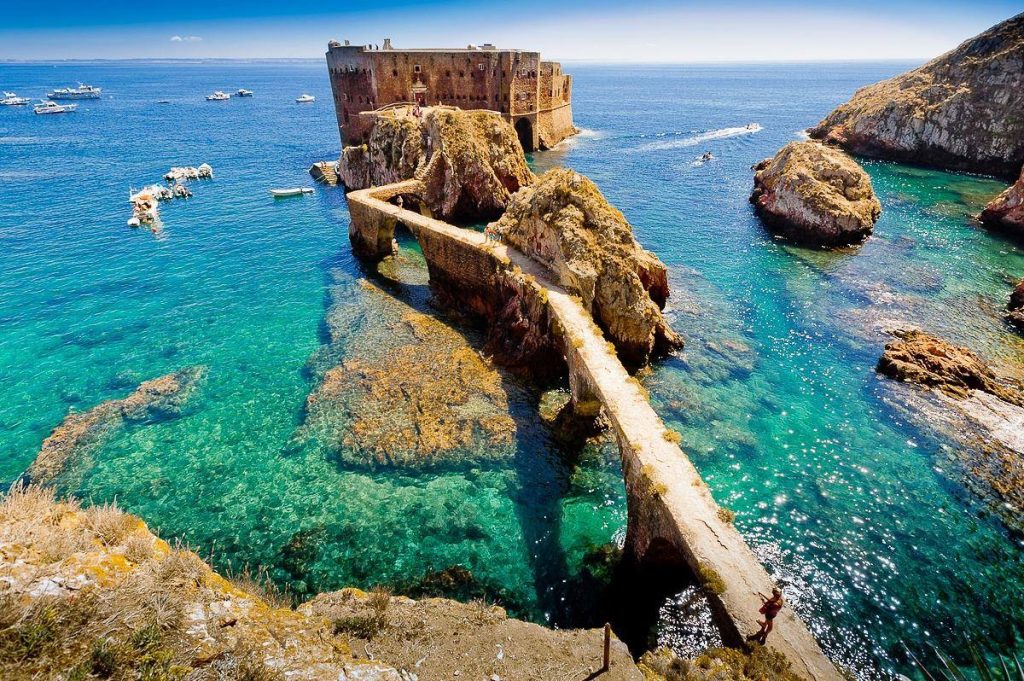
Portugal’s economic transition still faces many challenges. Its industrial structure is relatively weak, lack of technology or resource advantages; The export products are mainly primary products, the international competitiveness is weak; Problems such as the low proportion of manufacturing and the lack of core competitiveness still exist. Therefore, Portugal needs to continue its efforts to promote economic diversification and innovative development in order to achieve long-term stable economic growth.
Politics: The democratization process and the rise of the far Right
Portugal’s political landscape has undergone profound changes from dictatorship to democratization. Since the Carnation Revolution, Portugal has gradually established a modern democratic system and formed a relatively stable political pattern. However, the rise of the far right in recent years has brought new challenges to Portugal’s political stability.
Politics: The democratization process and the challenge of the Far Right
Portugal’s political landscape has undergone profound changes from dictatorship to democratization. Since the Carnation Revolution, Portugal has gradually established a modern democratic system and formed a relatively stable political pattern. However, the rise of the far right in recent years has brought new challenges to Portugal’s political stability.
- Solid steps towards democratization
On April 25, 1974, a military coup took place in Portugal that decided the fate of the country – the Carnation Revolution. This revolution not only overthrew the Estado Novo (New Nation), a right-wing dictatorship that had been in place since 1933, but also opened a new chapter in the democratization of Portugal. Since then, Portugal has embarked on a solid path of democratization and gradually established a modern democratic system. In this process, Portugal formed a two-party system of the Socialist Party and the Social Democratic Party alternating political structure. This system functionally underpins democratic institutions, allowing the two major parties to lead the country steadily by political agreement, even when a minority government is in power. This political stability provides a strong guarantee for Portugal’s economic development and social progress, enabling Portugal to play a more active role in European and international affairs. - Challenges and responses of far-right forces
Portugal’s political landscape faces new challenges. The rise of the far right poses a threat to Portugal’s political stability. These far-right forces, often under the banner of nationalism, xenophobia and extremism, try to make political gains by stirring up national sentiment and rejecting immigrants. Their presence not only threatens Portugal’s democratic institutions, but also poses a serious challenge to social harmony and stability in Portugal.
Faced with the challenge of the far-right forces, the Portuguese government and all sectors of society have taken positive measures to deal with it. On the one hand, the government has strengthened the supervision and crackdown on the far-right forces, and resolutely safeguarded the country’s democratic system and legal order. On the other hand, all sectors of society have also actively acted to resist the influence of the far-right forces by strengthening civic education, promoting multicultural development, and strengthening social solidarity. These efforts have provided strong support for Portugal’s political stability and social development.
Portugal is also actively seeking international cooperation to confront the challenge of the far right. As a member state of the European Union, Portugal actively participates in the political cooperation and security affairs of the EU, and works with other member states to combat threats such as the far right and terrorism. Such international cooperation has not only provided Portugal with more political support and security guarantees, but also made positive contributions to the stability and development of Europe.
After undergoing profound changes, Portugal has gradually established a modern democratic system and formed a relatively stable political pattern. However, the rise of the far right in recent years has brought new challenges to Portugal’s political stability. In the face of these challenges, the Portuguese government and all sectors of society have taken positive measures to deal with the threat of the far-right by strengthening international cooperation. These efforts have provided strong support for the political stability and social development of Portugal and made positive contributions to the stability and development of Europe.


